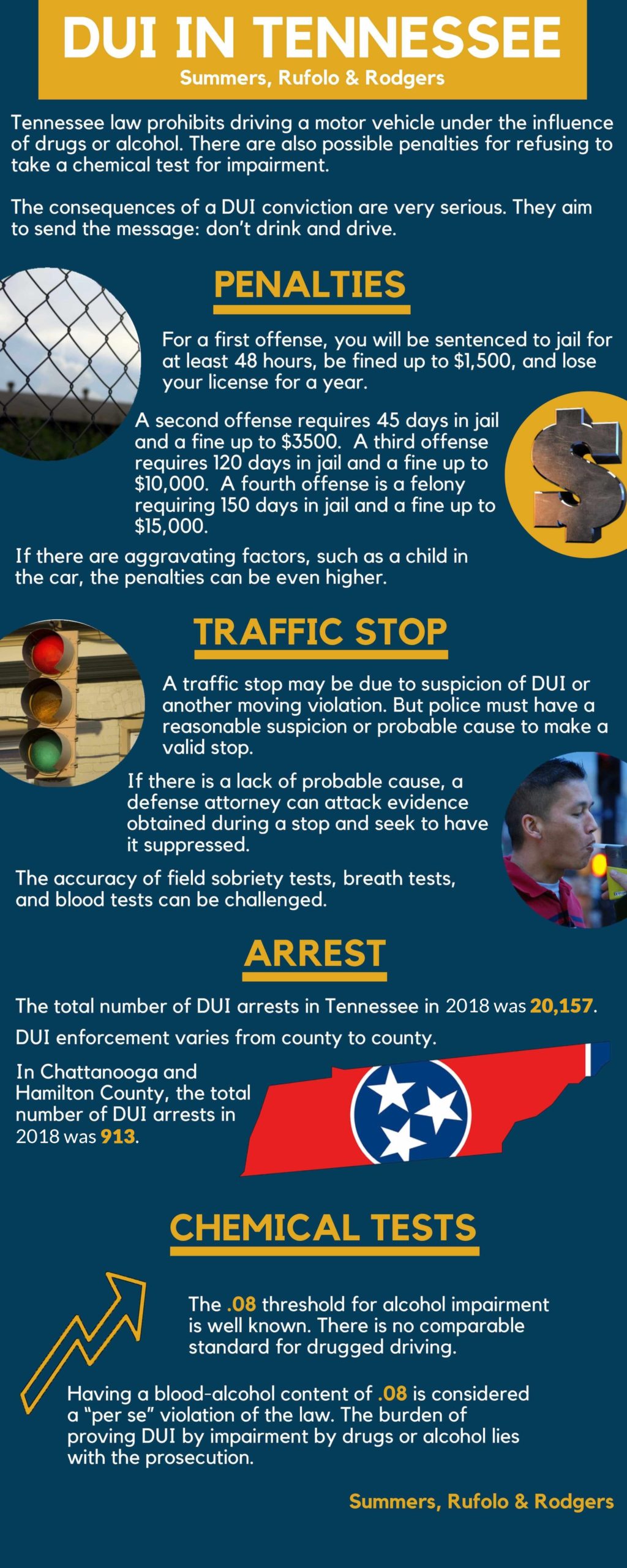DUI Infographic

Sources:
Tennessee Code 55-10-401
TBI
http://www.tncourts.gov/sites/default/files/docs/peggy_hora.pdf
http://www.ghsa.org/sites/default/files/2017-04/GHSA_DruggedDriving2017_FINAL.pdf
DUI In Tennessee
Tennessee law prohibits driving a motor vehicle under the influence of drugs or alcohol. There are also possible penalties for refusing to take a chemical test for impairment.
The consequences of a DUI conviction are very serious. They aim to send the message: don’t drink and drive.
Penalties
For a first offense, you could be sentenced to jail for 48 hours up to a year. You will also lose your driver’s license for a year.
Other costs of a first offense DUI include a fine of up to $1,500 and the requirement to lease and install an ignition interlock device.
For repeat offenses, and when there are aggravating factors such as a child in the car, the penalties are even higher.
Traffic Stop
A traffic stop may be due to suspicion of DUI or another moving violation. But police must have a reasonable suspicion or probable cause to make a valid stop.
If there is a lack of probable cause, a defense attorney can attack evidence obtained during a stop and seek to have it suppressed.
The accuracy of field sobriety tests, breath tests, and blood tests can be challenged.
Arrest
The total number of DUI arrests in Tennessee in 2016 was 23,310.
DUI enforcement varies from county to county.
In Chattanooga and Hamilton County, the total number of DUI arrests in 2016 was 486.
Chemical tests
Arrests for drugged driving are going up compared to arrest for alcohol impairment. In 2016, there are about 11,000 drivers tested for alcohol in Tennessee, compared to 9,000 for drugs.
The .08 threshold for alcohol impairment is well known. There is no comparable standard for drugged driving.
Having a blood-alcohol content of .08 is considered a “per se” violation of the law. But the burden of proving impairment by drugs or alcohol is with the prosecution.


